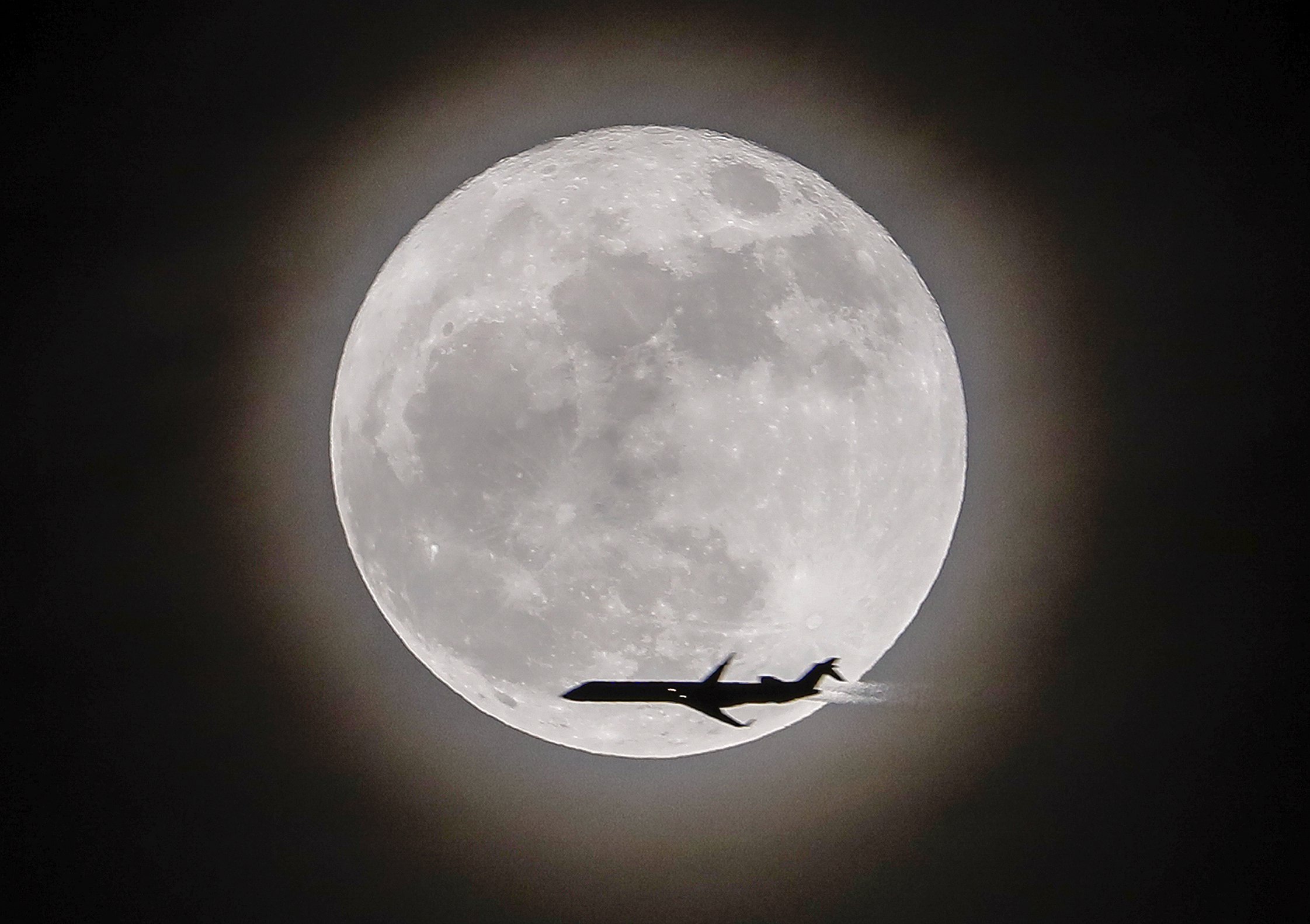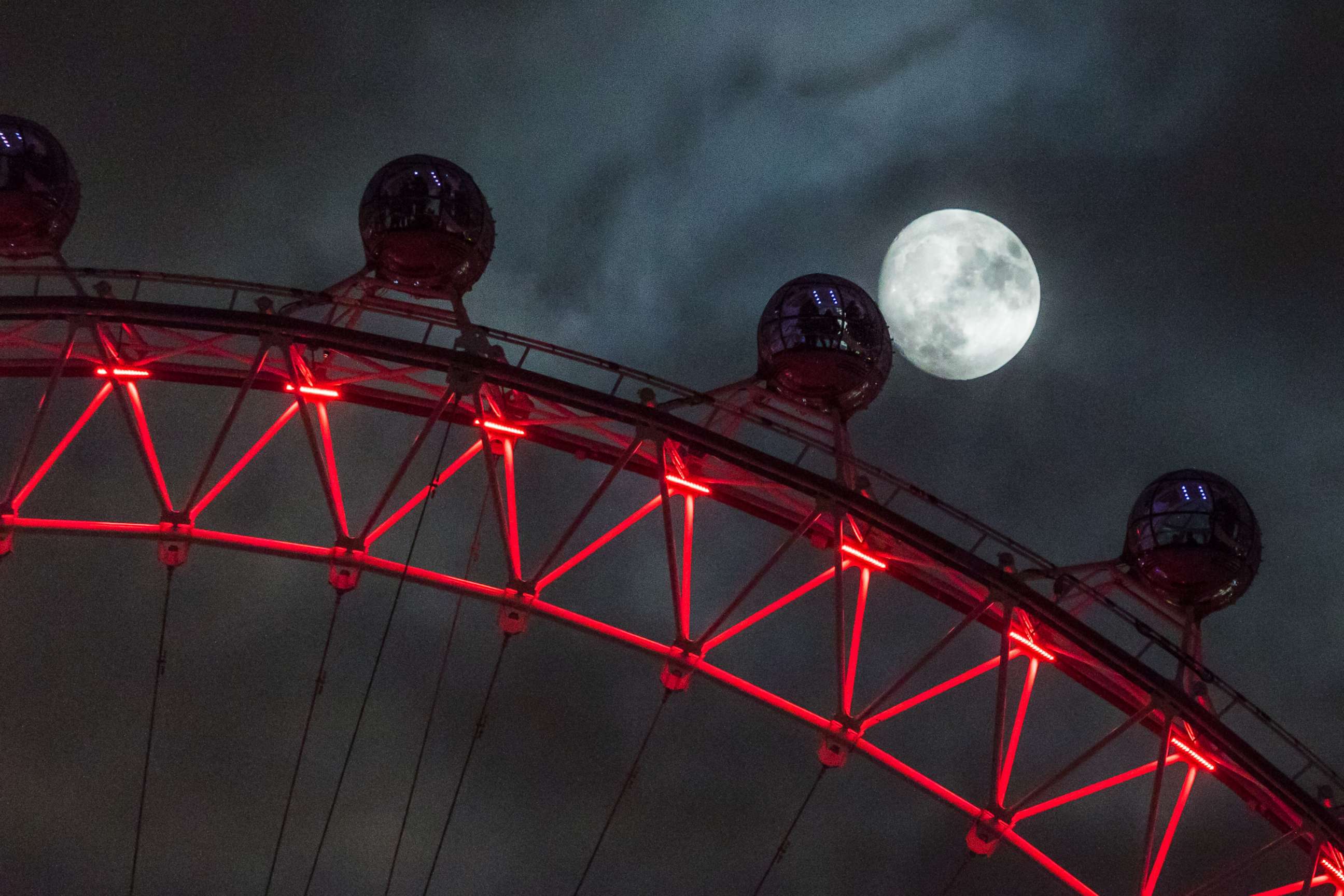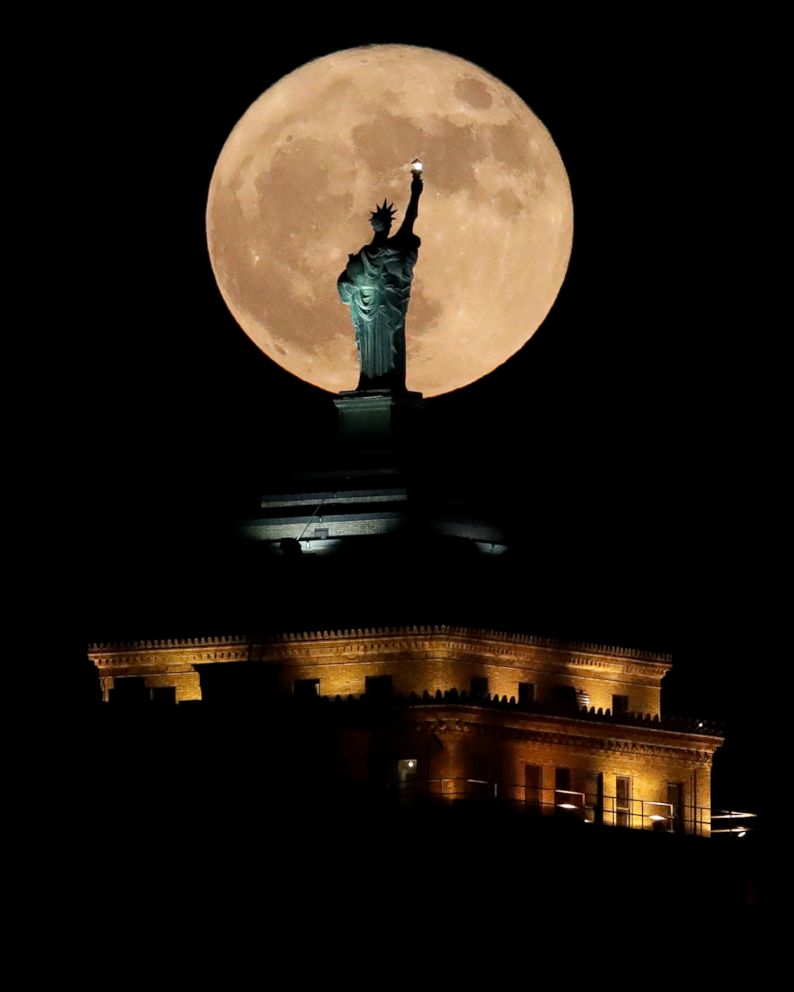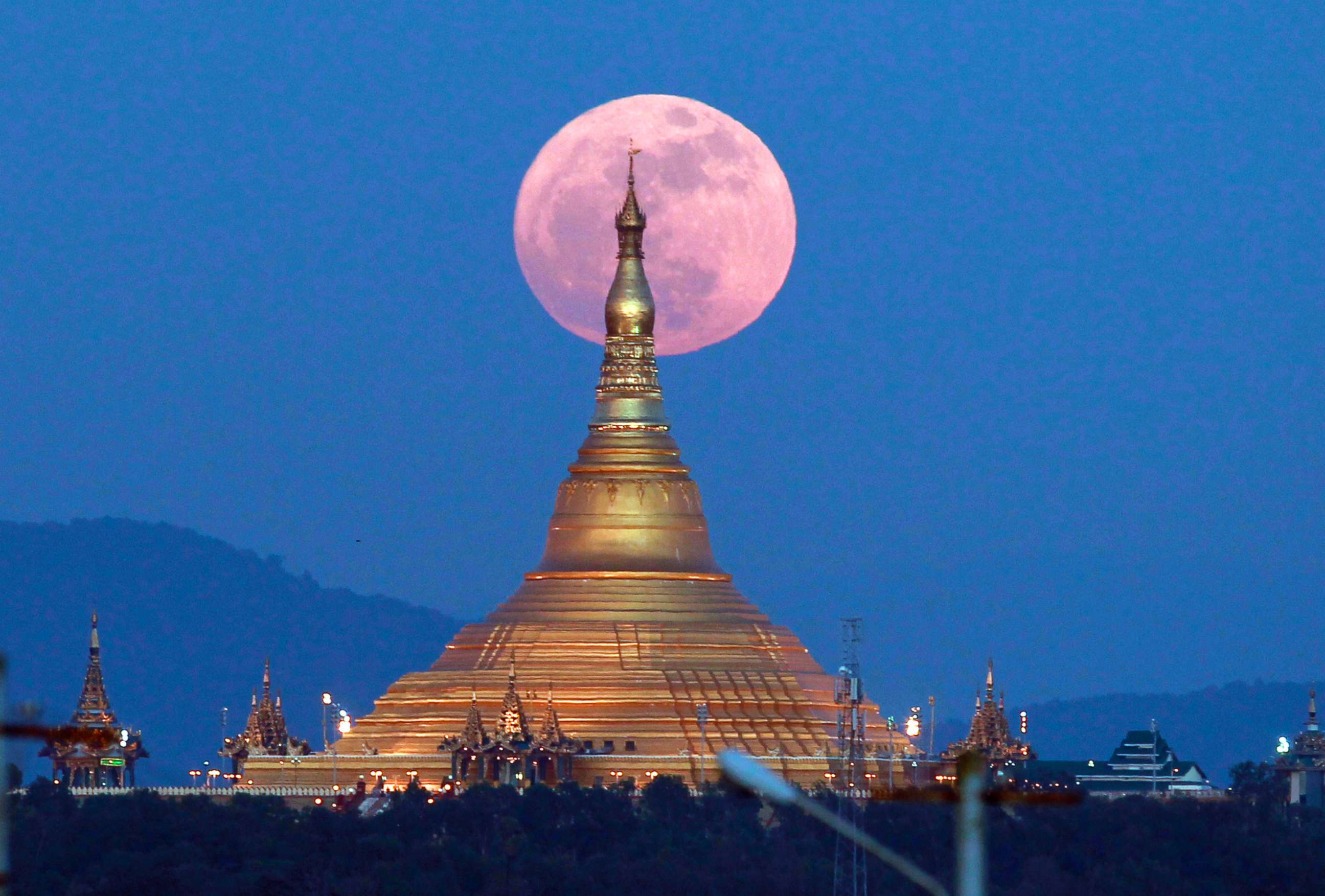Super blue blood moon: What to know about the rare celestial event
Skywatchers will be able to glimpse a rare phenomenon on Jan. 31.
— -- ABC News will begin live streaming coverage of the Super Blue Blood Moon on Wednesday morning starting at 5:30 a.m. ET. Live reports from Southeast Asia, the Hawaiian islands and the western U.S., as well as footage from NASA and the Virtual Telescope Project will give viewers a front-row seat to the action.
Tune in on ABCNews.com and on the ABC News app!
This week, skywatchers will be able to glimpse a rare phenomenon: a super blue blood moon.
The event may sound like a complicated tongue twister, but it's really just the confluence of three celestial occurrences.

After the full moon on New Year’s Day, another is scheduled to light up the night sky on Wednesday, Jan. 31. This is considered a blue moon because it is the second full moon of a month. A super moon is when the full moon appears larger and brighter to the naked eye.

These two events will also coincide with a total lunar eclipse, or blood moon, on Wednesday, Jan. 31.

Most days the moon is nearly 238,855 miles from Earth, but during the super moon it will be approximately 223,068 miles away, according to NASA. During a super moon, the moon can appear up to 14 percent larger and 30 percent brighter than usual.
A total lunar eclipse occurs when a full moon passes into Earth's shadow, making the moon appear red -- hence the nickname blood moon.
Altogether, the three events -- a blue moon, a super moon and a blood moon -- will make for a spectacular show the last night of January.
